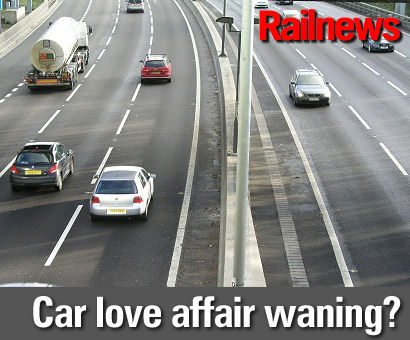YOUNG people are ‘falling out of love with the car’ and turning to trains instead, according to a new report.
The report prepared for the Office of Rail and Road and the Independent Transport Commission reveals major attitude changes to travel – especially in the younger age groups.
The report supports earlier findings and is also supported by many years of statistics which have shown train travel rising almost continuously over the past two decades.
One ‘dramatic finding’ is ‘a more utilitarian attitude to car ownership’ with greater weight being placed on alternatives.
Younger people are also ‘particularly concerned’ about the high cost of using a car – including insurance, parking and learning to drive.
By comparison, their parents and grandparents – particularly those living in rural areas – feel the need to keep their cars ‘in order to retain their independence’.
Technology is also having a major effect on travel choices, with ‘smart’ technology now an important factor. The report says: ‘Attitudes towards the value of travel time are changing, especially among business travellers who are increasingly attuned to using communications technology on the move.’
It explains: ‘Young people are much more open to using smartphones and applications to choose between travel modes, and to use new technology for new methods of shopping, such as click and collect from stations, reducing car use.’
It continues: ‘The use of public transport modes when young increases the likelihood of continuing to use these later in life, indicating that the trend towards public transport, especially rail use, will continue.’
Dr Matthew Niblett, director of the Independent Transport Commission, said: “The use of public transport is growing across all groups – young, old, business, migrant, minority ethnic groups – while people are adopting much more utilitarian attitudes towards car ownership.
“Understanding these changes will be of crucial importance for policy makers given the massive investment that has been promised in the strategic road and rail infrastructure over the next few years.”


